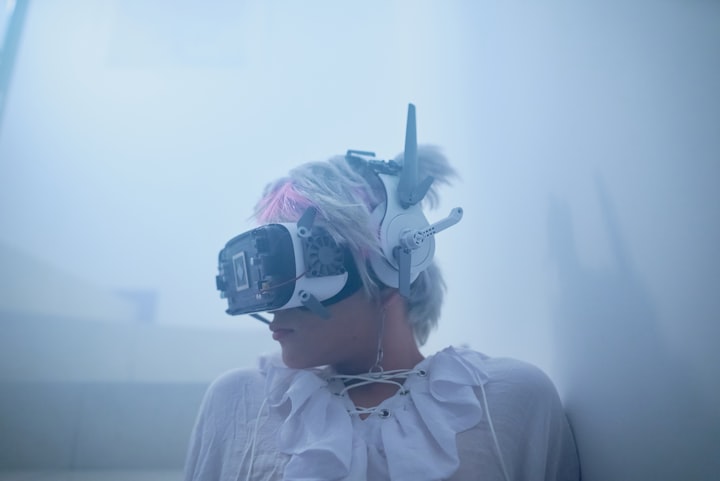Kids Writing For Kids?
Do kids have better ideas for child-friendly content?

Hello once again!
Having just finished writing the first season of Highton Heroes, I’ve taken some time to sit back and think about where it all came from. Where it started.
For those who don’t know, the raw materials for Highton Heroes comes from story arcs I wrote back when I was at primary school, during our creative writing time. While many others in my class wrote a selection of individual tales, I considered each story a chapter of an overarching narrative, and my overarching narratives got tighter and stronger over time.
Now, given I was in primary school, these raw materials aren’t the greatest. Sometimes the content borders on nonsense. But even reading them now, you can still spy key plot points, scenes and characters. Or maybe only I can because I’ve mentally retained some of the information about the stories over the years.
All of this got me thinking about my younger self writing these stories and enjoying them. I was entertained thinking about the adventures in my stories, even if I wasn’t clearly articulating them on paper. Does this mean kids could write better raw materials for their own entertainment? Now that I can translate this information into a clearer format, am I retaining what I found entertaining as a kid? And how do I ensure I achieve that?
Are there other tales of kids writing usable story materials?
Before I dive into my process, I first had a quick glance across the web and see if I could find other examples of stories written by children being used as the basis for formal projects. Are there others out there who, like me, are taking raw content from their younger selves or another young person and using it as the basis for a story? The short answer is not really – there aren’t a lot of well documented examples out there.
That doesn’t mean they don’t exist. If I had more time to really dig deep or if I had a bigger network to ask, I would surely find something. Maybe someone out there is stealing all their kids’ stories and turning them into an entertaining kids show while claiming it as their own work (that would be wild!). Regardless, I find this topic remarkably interesting.
One sort-of example I found comes from the YouTube channel ‘How It Should Have Ended’ or ‘HISHE’. On their kids spinoff channel, they have a range of videos of children narrating how they think a popular film should have ended. The one I stumbled across first was for Iron Man 2. The child in the video narrates a pretty crazy adventure of Iron Man fighting an Iron Shark.
Hearing about the adventure… I was entertained! I think a great writer could turn that into a fun movie. And I wasn’t the only one. The comments are disabled now, but when I first looked a few years ago, heaps of people said it sounded like an entertaining movie.
The above is a perfect example of kids coming up with a crazy story pitch that could become a great movie or series. That’s not to say a child’s pitch will always be a great pitch 100% of the time. Some of the other videos give a funny idea but probably not a great one for a formal project.
I think the HISHE videos are a sound example that help convey the point I’m trying to make. The inspired feeling I got from the Iron Man 2 video was exactly how I felt rereading my primary school stories years ago. I wish I could find more examples to share and discuss as I think there is a lot more to be said on this topic.
What drew me to my primary school stories?
While entertainment was a key factor, I’d say there was more that drew me to turning my old stories into screenplays. I often incorporated inspirations from media I was consuming at the time such as the Selby books or Ratchet and Clank. These other media items were hugely influential on my childhood, so much so that they filtered into and encouraged my own creative mind. Reading back my stories invokes nostalgia for not only my writing, but also the series I was inspired by back then.
An article by Emma Court talks about how rereading childhood books takes you back and reminds you of your own personal growth. While I didn’t pick it up at first, her article made me realise that one of the connections I have to these primary school stories is that they were the foundation for my interest in writing. They were the green chutes of me developing these skills that have become a central part of my identity. And further to that, it connects me back to the media I used as inspirations. The media that also formed part of my identity as I grew up.
What is taken from raw materials?
It should be obvious that I don’t just read my childhood stories and turn them into screenplays. A piece of advice I was given when I took screenwriting at uni was, “You can take inspiration from your life, but do not simply adapt it into a screenplay. It is raw material and must be worked around the principles of good screenwriting.” The exact same sentiment can be applied to how I use my childhood writings.
What I wrote back then is raw material. It doesn’t directly translate but can be used to build a foundation. A lot of content in my final Highton Heroes screenplays was never even evident in my school writings. And sometimes it’s just a small mention of something that becomes a main plot point in the Highton Heroes narrative. For example, take a look at this small extract:

It’s pretty nonsensical. In fact, it kind of sounds a lot like the kids in those HISHE videos. This does not make it word for word into the screenplay in any sense. But those opening lines about the crazy weather. There’s a bit more on this elsewhere in the story, but not a whole lot. Now look at the title of the sixth episode of Highton Heroes.

The episode is about a machine that controls the weather. While it was designed to make a perfect climate, it gets stolen and is used to destroy towns by creating chaotic and destructive weather including lightning, thunder and acid rain. Those few lines became the foundation for an entire 25-page episode screenplay.
This isn’t just me forcing a story out of a small dot point either (although that is kind of what writing is sometimes). I blend the weather machine with other ongoing narratives taking place across the Highton Heroes season.
While this is just the tip of the iceberg, I hope it helps paint a clear picture of exactly how my primary school stories become screenplays.
How do I retain the bits I loved as a child?
This. This is the hardest part to consider. Frankly, I don’t always remember what I was thinking as a child. I don’t remember exactly what I loved in the media I was consuming that led me to write what I wrote. This is particularly a challenge when you consider early memories aren’t the most reliable, especially when some of us are fabricating them.
So, with that in mind, the best I can do is try to cast my mind back when I read my stories and think about where the thoughts came from. Try to pin down the exact inspiration for a scene. And then, go find that media and rewatch it. Try to tap into my subconscious and re-feel what I was feeling back then. This isn’t always successful to the degree I wish it was, but it more often than not helps me reconnect with my inspirations.
I replayed Ratchet and Clank 1 and 2. I reviewed some of the Selby book chapters. I rewatched scenes of Jack Nicholson’s Joker from Batman (1989). All these things factored into my stories that made up Highton Heroes Season 1. As I reread my stories, I could see the above inspirations plainly. It helped me remember what I loved and I was able to use those feelings to help write the screenplays with a stronger vision.
The final point to remember is one I always make. Every piece of media is inspired by something, and I think recognising our inspirations is important. However, we should never directly copy them. And that is something I take very seriously. I will draw from my inspirations and they will shape my work. But never will I directly copy from them. Inspirations, like the stories I wrote in primary school, are raw materials, nothing more.
--
Thanks for joining me as I explore my thoughts around kids writing for kids. With all of the above in mind, do you think the raw materials children write could ultimately make better media for kids than any adult could? Do you have any examples of raw materials from children being used to create media?
I’d really love to hear more thoughts on this, especially examples. I think it’s a really interesting topic and one I hope to dig more into as I continue to write Highton Heroes seasons next year.
Til next time,
Dean.
About the Creator
Space & Lasers
I'm a free-time sci-fi writer keen to share my work, discuss my inspirations and just talk about writing in general.
All blogs were originally posted on my website. You can find my site here: https://spaceandlasers.com/






Comments
There are no comments for this story
Be the first to respond and start the conversation.